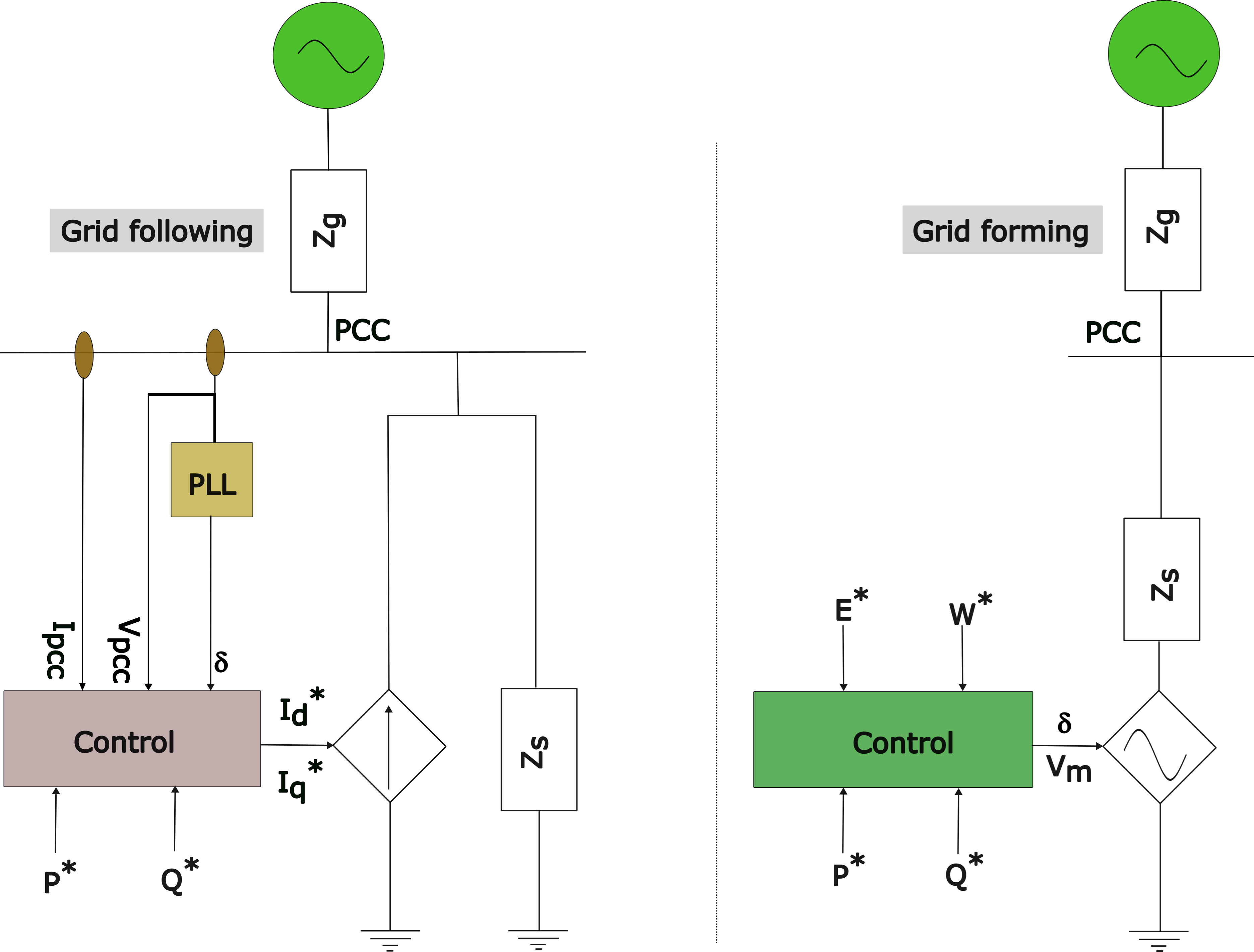Power Converters for RE Integration

Fig 1. Grid forming versus Grid following converter.
The efficient and flexible Power Electronic Interface (DC-AC, DC-DC) is required to integrate renewable resource sources, such as PV cells, fuel cells, wind, and energy storage battery packs. The power electronic interface controls voltage and current levels to maintain power flow between renewable sources and the electric grid.
Major research aspects in this domain include.
| [1] |
Dual Active Bridge Converters for charging infastructure |
| [2] |
Power Electronic Interface for fuel cells |
I am looking for motivated students with a strong academic background in power electronics, excellent analytical and problem-solving skills, and a passion for research. Previous research experience is not essential , but a willingness to learn , work hard and contribute is expected. Interested students may reach out to me. Email Me.